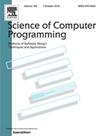“Your AI is impressive, but my code does not have any bugs” managing false positives in industrial contexts
IF 1.4
4区 计算机科学
Q3 COMPUTER SCIENCE, SOFTWARE ENGINEERING
引用次数: 0
Abstract
Context
“Your AI is impressive, but my code does not contain any bugs”— such a statement from a software developer is the antithesis of a quality mindset and open communication. What makes it worse is that it is oftentimes true.
Objective
This paper analyses false positives' impact and related challenges in machine learning software defect prediction and describes the mitigation possibilities.
Methods
We propose a broad-picture perspective on dealing with false positive predictions based on what we learned from our industrial implementation study in Nokia 5G.
Results
Accordingly, we draw a new direction in transitioning defect prediction into a well-established industry practice, as well as highlight potential emerging topics in predictive software engineering.
Conclusion
Increasing human buy-in and the business impact of predictions significantly improves the chances of future software defect prediction industry adoptions to succeed.
“你的人工智能令人印象深刻,但我的代码没有任何漏洞”,在工业环境中管理误报
“你的人工智能令人印象深刻,但我的代码不包含任何错误”——软件开发人员的这种说法与质量心态和开放沟通是对立的。更糟糕的是,这往往是真的。目的分析假阳性对机器学习软件缺陷预测的影响和相关挑战,并描述缓解的可能性。基于我们从诺基亚5G工业实施研究中学到的经验,我们提出了一个处理假阳性预测的宏观视角。因此,我们在将缺陷预测转化为一个成熟的行业实践中描绘了一个新的方向,并强调了预测软件工程中潜在的新兴主题。结论:增加人员支持和预测的业务影响显著地提高了未来软件缺陷预测行业采用成功的机会。
本文章由计算机程序翻译,如有差异,请以英文原文为准。
求助全文
约1分钟内获得全文
求助全文
来源期刊

Science of Computer Programming
工程技术-计算机:软件工程
CiteScore
3.80
自引率
0.00%
发文量
76
审稿时长
67 days
期刊介绍:
Science of Computer Programming is dedicated to the distribution of research results in the areas of software systems development, use and maintenance, including the software aspects of hardware design.
The journal has a wide scope ranging from the many facets of methodological foundations to the details of technical issues andthe aspects of industrial practice.
The subjects of interest to SCP cover the entire spectrum of methods for the entire life cycle of software systems, including
• Requirements, specification, design, validation, verification, coding, testing, maintenance, metrics and renovation of software;
• Design, implementation and evaluation of programming languages;
• Programming environments, development tools, visualisation and animation;
• Management of the development process;
• Human factors in software, software for social interaction, software for social computing;
• Cyber physical systems, and software for the interaction between the physical and the machine;
• Software aspects of infrastructure services, system administration, and network management.
 求助内容:
求助内容: 应助结果提醒方式:
应助结果提醒方式:


